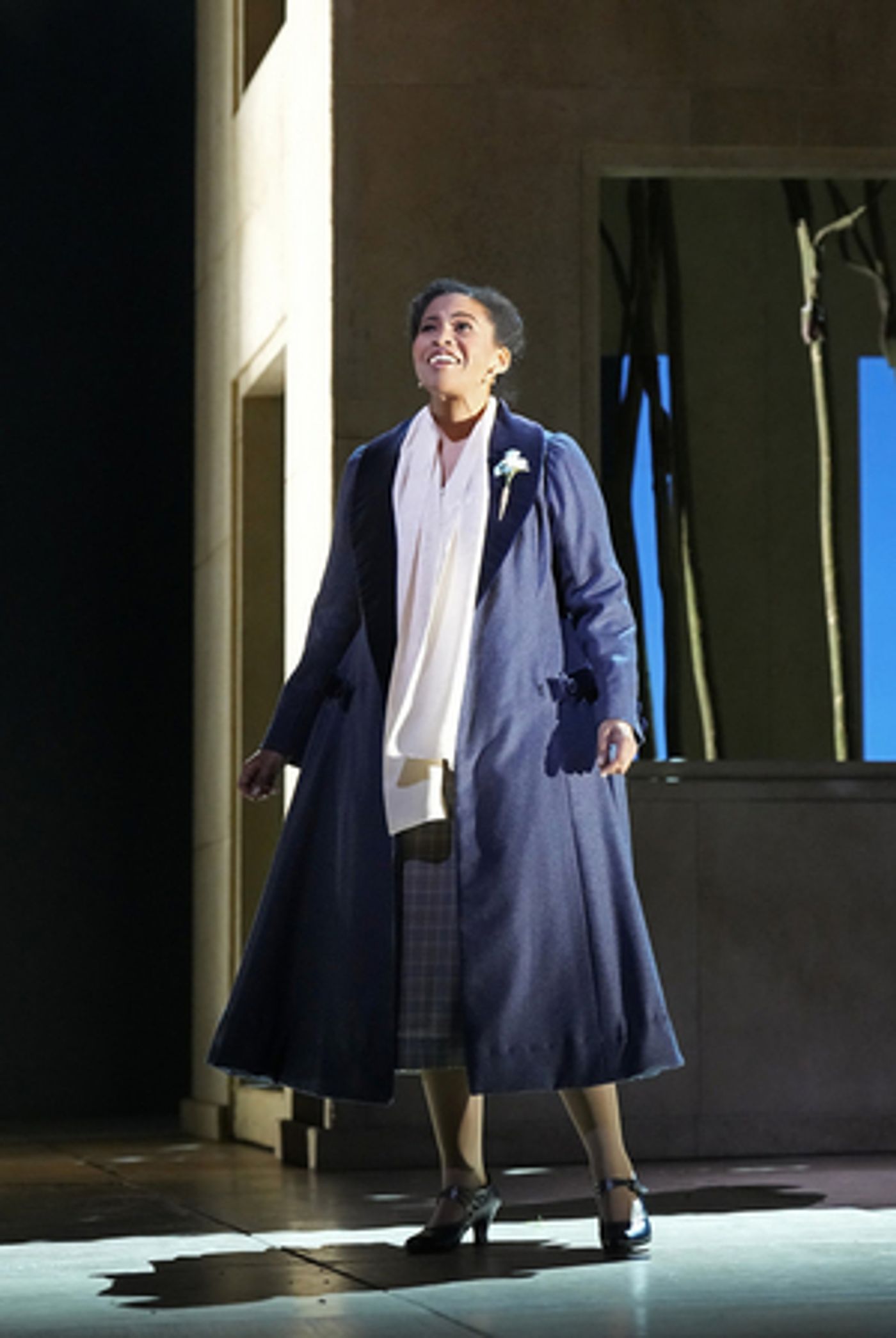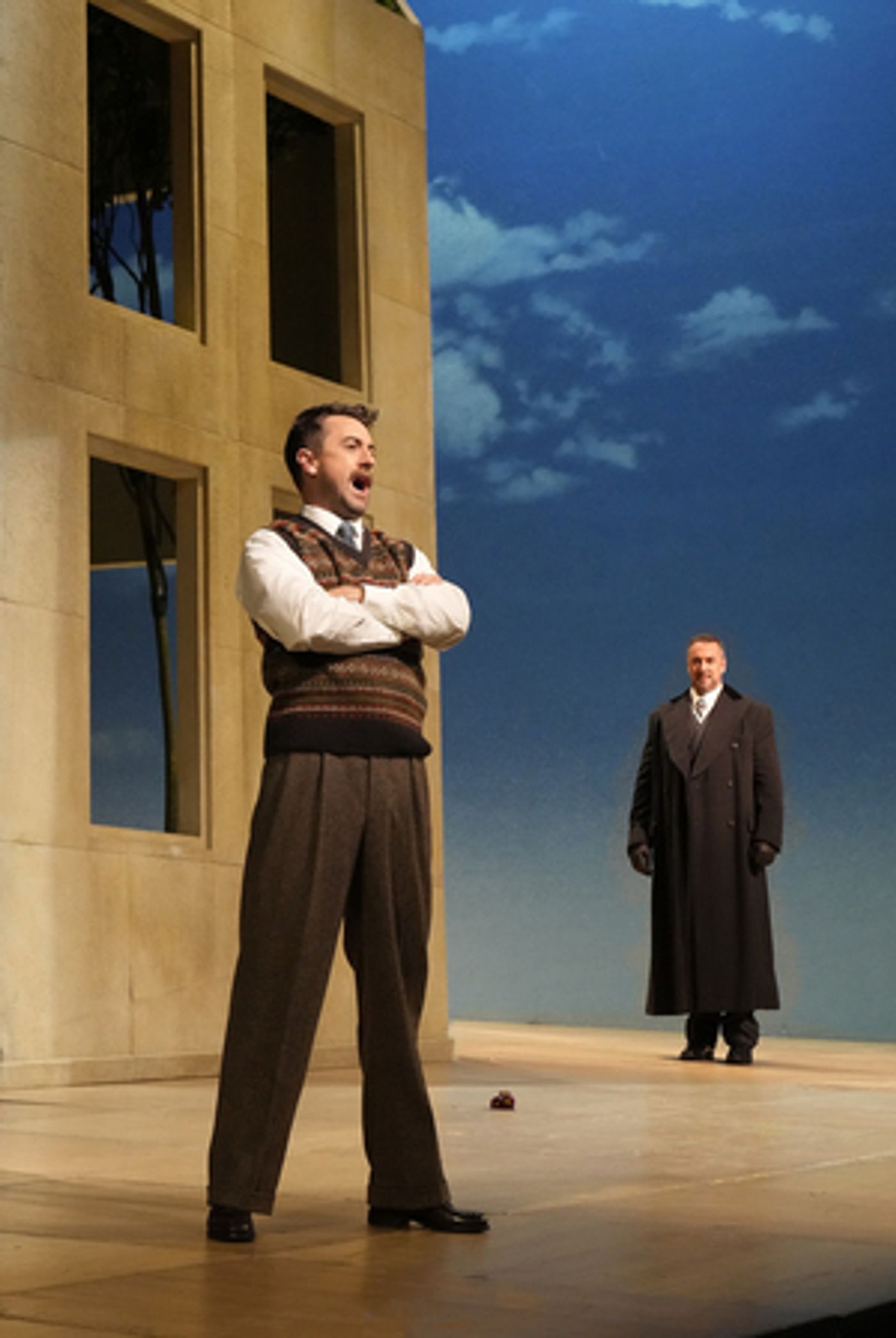Review: Stravinsky's RAKE Progresses Briefly at the Met
Golda Schultz and Ben Bliss highlight “The Rake’s Progress” in a handful of performances of Jonathan Miller production

While I was watching the Met's current beautiful yet somehow languid production of the Igor Stravinsky and WH Auden/Chester Kallman opera THE RAKE'S PROGRESS the other night--with only two more performances until it goes back into mothballs for probably many years--I couldn't help wishing that the opera house was more like Broadway.
No, not so that it might be filled with (even more) pieces designed to put audiences in seats and be less about substance. But because Broadway productions have the luxury of more time to warm up and hone a production's fine points before they put it in front of an audience--unlike opera, where it may disappear before you know it, no matter how well it is received.

Don't get me wrong: There was much to admire in the current performance, from the impeccable baton of Susanna Malkki with the marvelous Met orchestra, to the spectacularly luscious singing of soprano Golda Schultz as Anne Trulove paired with tenor Ben Bliss's bright-sounding, smart "rake", Tom Rakewell, so good in "Here I stand" and "Love too frequently betrayed." Schultz is a jewel to be treasured, as she proved in her moving "No word from Tom" morphing into the ravishing "Quietly night" and somehow became more central to the story than ever.
Mezzo Raehann Bryce-Davis was a delight as the bearded lady Tom marries for her fame, though I thought she would have had more to give with a little more time to settle into the role, a debut for her at the Met.
I missed some malevolence in the velvety bass-baritone of Christian Van Horn's Nick Shadow--how I wished he had brought some of his Mephistophele (Boito) to this variation on the theme! There simply wasn't enough evil lurking behind his performance; I didn't need him to twirl his mustache but it would have been nice to a stronger feeling that his intentions were not pure.
The smaller roles were filled well, showing off the depth of the talent pool at the Met, with earthy mezzo Eve Gigliotti as Mother Goose, madam of the brothel, and wise bass James Creswell as Anne's father, Trulove, who has the feeling that there's something fishy about our "hero" Tom.

Photo: Ken Howard/Met Opera
And not to give short shrift to Stravinsky's score--no, not at all. This may not be the composer at his most daring and dissonant--or what we generally think of as such--but combined with the elegant neoclassical to make a complex treat for the ears. The libretto by Auden and Chester Kallman--tempting Tom to chase money rather than love as he makes his way in the world--is smart and knowing in moving this story, suggested by and building on the series of 18th century paintings and etchings by William Hogarth, thrusting forward.
As for the production, originally created by Jonathan Miller with J. Knighten Smit in charge now, as designed by Peter J. Davison with Jennifer Tipton's lighting, and Judy Levin's evocative costumes, it's simply gorgeous. But--and it's a big "but"--it ruins the continuity of the piece. The scenery changes lumber along, leaving the audience to file its nails until the next scene comes on.

Photo: Ken Howard/Met Opera
What a mistake! If ever there was a piece that called for a unit set that could move one scene into another, it's this. The result is that boredom creeps in that is no fault of the opera's creators. Was it this night in particular? Was it me? I've seen the opera before, in various other productions as well as this one, and I don't recall the longueurs of Friday night's performance.
There are two more performances of THE RAKE'S PROGRESS this season, on June 7 and 11. For more information, see the Met's website.
Reader Reviews

Videos

